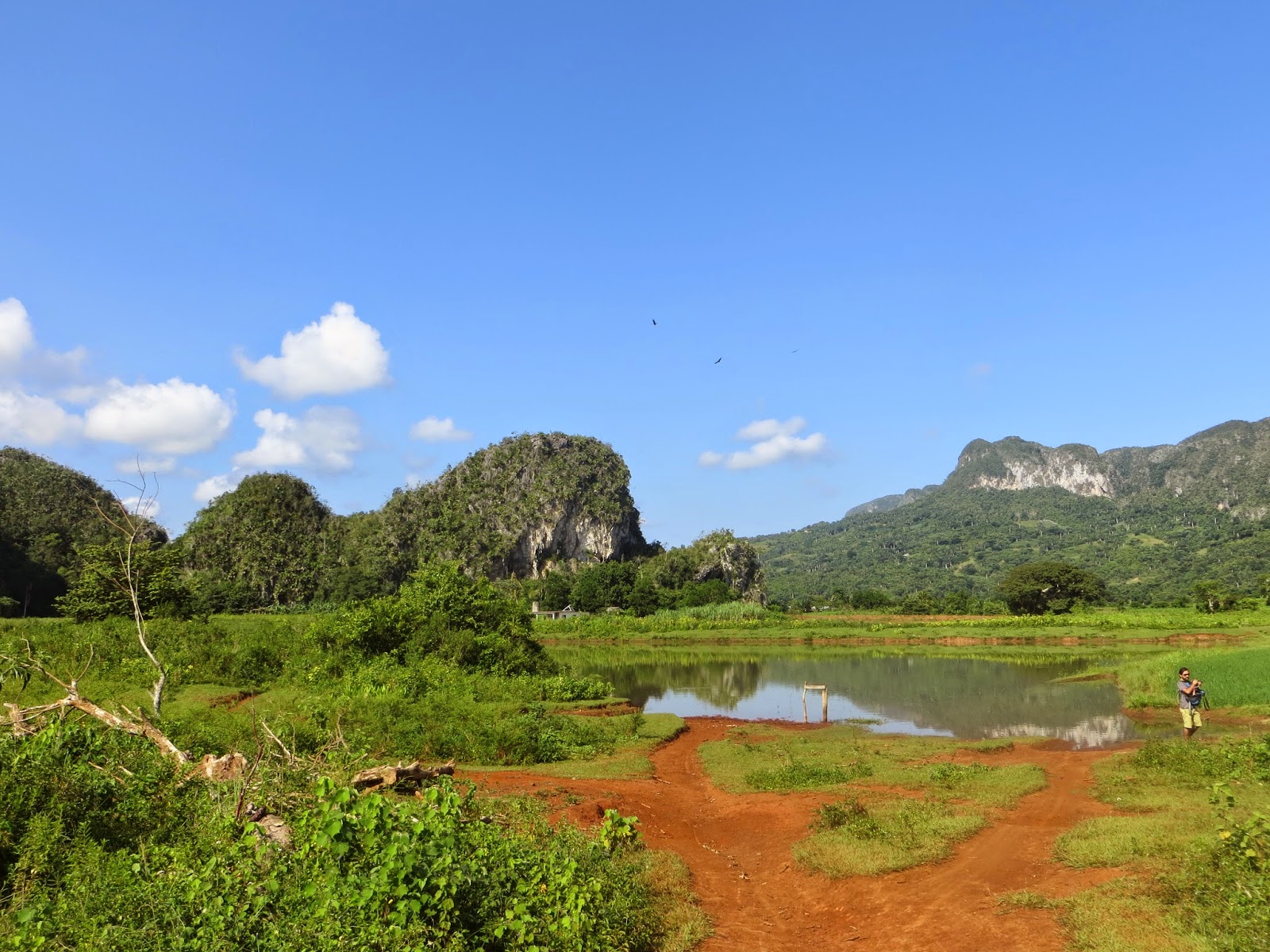 |
| Beautiful Trinidad |
Trinidad is a UNESCO World Heritage listed town in central Cuba. It is a perfectly preserved Spanish colonial settlement which brings you back to 1850s with its cobbled streets, and horse carriages. Because of its magnificence, it became very popular among tourists. Therefore, it is definitely more expensive than Santiago.
Our efforts of finding a cheap restaurant paid off when we met Odiladies and her husband, Airan who run a little paladar (a Cuban term for a family run small restaurant). They were a young couple who took advantage of the new laws in Cuba and opened up their own business. They had great fish for $4 which was quite cheap for Trinidad. We instantly became friends with them and spent great time together. Odiladies also helped us to find a good babalawo (a Saint in Santaria religion) to clear the negative energy Alex was experiencing in the last couple of weeks. Santaria (Way of the Saint) is an Afro-Caribbean religion based on Yoruba beliefs and traditions. In order to get rid of Alex’s bad luck we were happy to try anything.
We visited a local babalawo, Dr. Jose Antonio, who is a medical doctor and also a medium. He delivered us some messages from the spirit world and told Alex to do a cleaning ceremony with some fruits. The next day, we did the ceremony in the Caribbean Sea. Believe it or not, Alex felt a sudden shift in her energy and her luck seemed to get better after that. It was amazing.
Our efforts of finding a cheap restaurant paid off when we met Odiladies and her husband, Airan who run a little paladar (a Cuban term for a family run small restaurant). They were a young couple who took advantage of the new laws in Cuba and opened up their own business. They had great fish for $4 which was quite cheap for Trinidad. We instantly became friends with them and spent great time together. Odiladies also helped us to find a good babalawo (a Saint in Santaria religion) to clear the negative energy Alex was experiencing in the last couple of weeks. Santaria (Way of the Saint) is an Afro-Caribbean religion based on Yoruba beliefs and traditions. In order to get rid of Alex’s bad luck we were happy to try anything.
 |
| Colourful Trinidad |
We spend most of our time visiting this beautiful colonial town and sharing great moments with our newly made friends. We met a friend of Airan, Juan, who was together with Mariana from Argentina. We got along very well and Mariana invited us to visit her when we will be in Argentina.
 |
| Our new friends |
 |
| Palacio Azul |
 |
| Bike tour with friends |
The next day, we rented some bicycles and visited the Viñales Valley with our new friends. The valley had a breathtaking scenery and a peaceful rural life. This part of Cuba is still very virgin and serene. The region is also famous for the production of quality tobacco and best Cuban cigars.
We finished our tour around 3pm and had lunch in our casa particular. It is a common practice that these places offer meals to their guests to make additional income. It was a perfect way of tasting the local cuisine. After a long lunch, we said goodbye to our friends as they were going back to Havana the next day.
We finished our tour around 3pm and had lunch in our casa particular. It is a common practice that these places offer meals to their guests to make additional income. It was a perfect way of tasting the local cuisine. After a long lunch, we said goodbye to our friends as they were going back to Havana the next day.
 |
| Cuban tobacco grower |
After an incredible month in Cuba, we were on our way to the airport in an old American car. What a closure! It was amazing to see that these 50+ year old cars still run quite well. The journey was a smooth and we made it on time to catch our plane to Ecuador.
We had several unusual experiences while we were in Cuba. We experienced theft, loss, shock, frustration, pain, anger, helplessness, relationship crisis, love, care, laughter, joy, rhythm, dance, friendship. I am grateful for the variety of experiences because they added richness and flavour to our journey, no matter how difficult they might have been at the time. Thank you Cuba! We will always remember the warm hearts of your people.
















